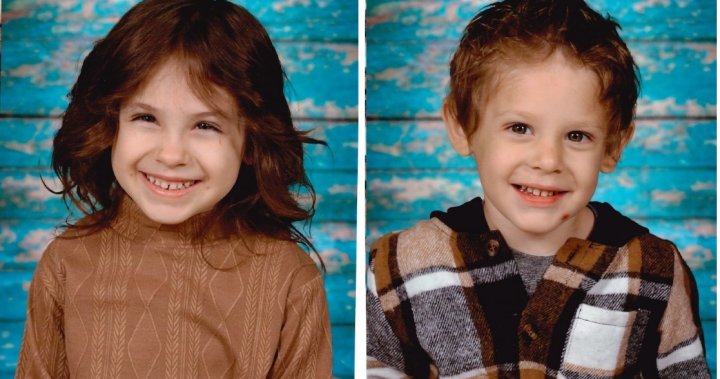The trail of evidence has gone cold once again in the tragic search for three young Nova Scotians. After five days of intense ground operations spanning Cape Breton’s rugged terrain, RCMP announced yesterday they’ve suspended active search efforts for the children who vanished from their rural property nearly two weeks ago.
I spent yesterday afternoon at the community center in Mira Gut, where exhausted volunteers gathered after the official search suspension. The mood was somber but determined as residents organized into independent search parties despite authorities scaling back operations.
“We’ve received over 600 tips from the public,” Staff Sergeant Denise Gray told me during a briefing at the command post. “Each one is being thoroughly investigated, but we haven’t located any physical evidence that would suggest where the children might be.”
The disappearance has shaken communities across the province. Eight-year-old Ellie Patterson and her cousins, Ryan and Melissa Harper, ages 10 and 7, were last seen playing near a creek that borders their grandparents’ property on July 4th. The children’s bicycles were discovered undisturbed near the water’s edge.
Local mother Janine MacIntosh, whose daughter attends school with Ellie, described the community’s emotional state. “Nobody’s sleeping. We’re all thinking about those children every minute of the day. This doesn’t happen here—not in our community.”
The case has drawn comparisons to other rural missing persons investigations, but RCMP officials have been careful not to speculate publicly. According to Statistics Canada data, approximately 40,000 children are reported missing annually across the country, though the vast majority are located within days.
In Cape Breton, where tight-knit communities often rely on one another more than government services, the investigation has taken on deeply personal dimensions. At Tim Hortons in nearby Glace Bay, conversations inevitably turn to theories and potential leads.
“We haven’t ruled out any possibilities,” Staff Sergeant Gray emphasized when I asked about speculation circulating on social media. “But we’re focusing on evidence-based investigative work rather than rumors.”
The search operation has been one of the largest in Nova Scotia’s recent history. More than 200 personnel from various agencies participated, including RCMP tactical teams, Coast Guard vessels, volunteer firefighters, and K-9 units. Helicopters equipped with thermal imaging technology scanned the densely wooded areas surrounding the property for days.
Frank O’Neill, director of Emergency Management Nova Scotia’s eastern division, detailed the challenges facing searchers. “We’re dealing with rough terrain—dense forest, abandoned mine shafts, coastal areas with dangerous currents. The weather hasn’t cooperated either, with rain compromising potential evidence.”
Child safety advocates like Karyn Mitchell from the Canadian Centre for Child Protection have traveled to the area to support the families and provide expertise. “The first 72 hours are critical in missing children cases,” Mitchell explained during our conversation at the community center. “But that doesn’t mean hope diminishes after that window. We’ve seen successful recoveries weeks after disappearances.”
The families have remained largely private during the ordeal, requesting space through an RCMP family liaison officer. A brief statement released through their pastor expressed gratitude for community support but asked for continued prayers.
Provincial resources have been mobilized as well. Premier Tim Houston visited the command center on Sunday, pledging “whatever resources necessary” to continue the investigation. The province has established a dedicated tip line and announced a $50,000 reward for information leading to the children’s whereabouts.
What’s been particularly striking in my conversations with local residents is the way this case has altered daily life across Cape Breton. Parents describe keeping children closer to home. Community events have been postponed. The island’s usually vibrant summer tourism season has taken on a subdued tone.
“These children belong to all of us,” said Eleanor MacNeil, who’s lived in Mira Gut for over sixty years. She was organizing food donations for volunteer searchers. “Cape Bretoners take care of our own. We won’t stop looking.”
While official search operations have been suspended, investigators emphasize the case remains active. Digital forensics teams are analyzing electronic devices from the family home, and investigators continue interviewing potential witnesses. The RCMP underwater recovery team has conducted multiple sweeps of the creek and nearby coastline.
What happens next will likely depend on incoming tips. Authorities have asked residents to check outbuildings, summer cottages, and hunting cabins that might have been overlooked.
As darkness fell over Cape Breton last night, dozens of vehicles still lined the rural road near the search area. Community members with flashlights continued their own search efforts, a testament to rural Nova Scotia’s resilience and determination.
For now, three bicycles sit unclaimed at the RCMP station—poignant reminders of children whose absence has united strangers, challenged investigators, and left a community holding its collective breath.
Anyone with information is urged to contact the RCMP tip line at 1-888-222-TIPS.






